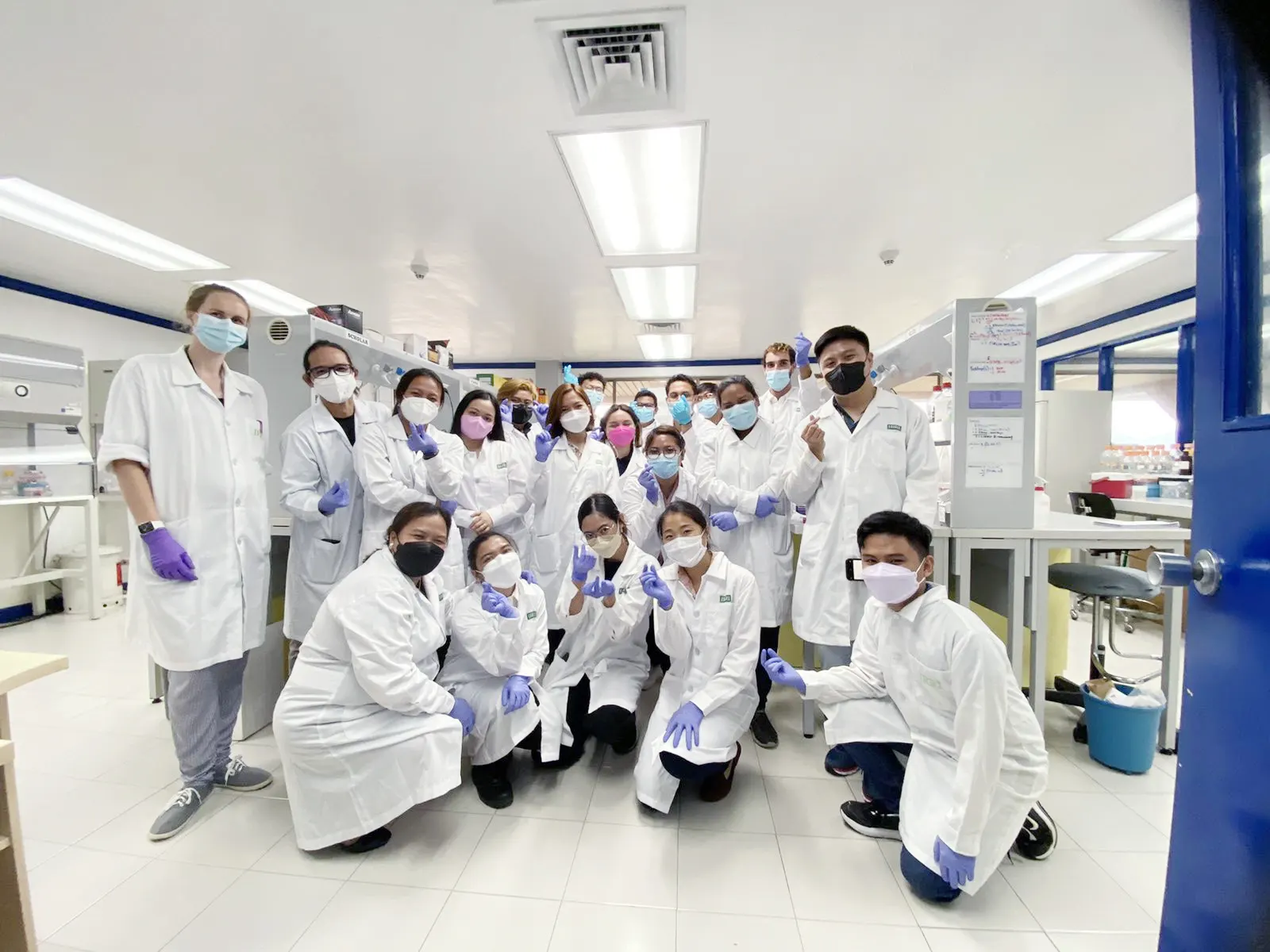Philippine Biotech Regulators undergo training on CRISPR Gene Editing by IGI, IRRI Experts
By: Paulyne Nathalie Ordillo , Alexis Marie Sagisi and Darlene Joy Siena
Event July 6 to 8, 2022
Los Baños, Laguna– Regulators from the Department of Agriculture-Bureau of Plant Industry- Biotechnology Core Team for Plant Breeding Innovations (BCT-PBI) and Bureau of Animal Industry- Biotechnology Core Team were trained on CRISPR/Cas gene editing technology by a team of Scientists from the Innovative Genomics Institute (IGI) and the International Rice Research Institute (IRRI) last July 6 to 8, 2022. The three-day classroom and laboratory training was organized jointly by IGI, IRRI, the Department of Agriculture-Bureau of Plant Industry (DA-BPI), and the Biotechnology Coalition of the Philippines (BCP).
In his opening remarks, Dr. Abraham Manalo, BCP Executive Secretary, made special mention to the two lady-scientists notably recognized for being the primary mover that enabled the training program to be conducted: Dr. Melinda Kliegman, Director of the Public Impact team at IGI, and Dr. Inez Slamet-Loedin, Head of the Genetic Design and Validation Unit at IRRI. For his message, Dr. Hans Bhardwaj, Platform Leader of IRRI’s Rice Breeding Innovations, welcomed the fifteen (15) regulators from BPI and the Bureau of Animal Industry, along with the instructors from IGI and IRRI. He emphasized that regulators play a huge responsibility in the ongoing process of the development and extension of new technologies to farmers, hence it is essential to learn and have a basic understanding of the fundamentals of the technology while working closely with the scientists. Given that CRISPR/Cas technology is one of the most extensively utilized gene editing techniques, the organizers have invited two IGI experts and a team of scientists from IRRI to provide a comprehensive training program on the technology and how it works in plants and in animals. The instructors were led by Dr. Inez Slamet-Loedin, Head of the Genetic Design and Validation Unit at IRRI; Mr. Nicholas Karavolias, Plant Biology PhD Student from the University of California Berkeley; Dr. Ellen Rim, Postdoctoral Researcher from the University of California Davis; and Dr. Yvonne Ludwig, Postdoctoral Fellow at IRRI.
The training course consisted of lectures, interactive activities, and hands-on laboratory exercises focusing on Plant Breeding Innovations, with the science discussed on the first two days and regulatory evaluation on the third day. The different gene editing techniques and tools were presented during the first day, highlighting the CRISPR/Cas9 technology’s mechanism. Its technique was dissected – to answer questions on what it is composed of, how it transforms target organisms, how gene edits are validated, and how transgene presence is detected. The classroom presentations were then followed by interactive activities to let the participants experience designing guides for CRISPR/Cas9 transformation and looking for presence of gene edits from amplified DNA-edited sites.
Laboratory activities also allowed the participants to get acquainted with techniques such as micropipetting, proper handling of reagents, setting up a Polymerase Chain Reaction (PCR) machine, loading of samples, and assembling-running an agarose gel for gel electrophoresis. These techniques were applied to look and analyze products from the in-vitro digest of PCR amplicons using Cas9 ribonucleoproteins (RNPs) and determining the integration and segregation of transgenes. These focuses were able to kick-off discussions on analyzing data from the classroom interactive activities as well as the products from the laboratory exercises. The scientific principles and applications were further digested by allowing the participants to assess mock dossiers and examine them under regulatory lens through exchange and discussion of ideas.
At the conclusion of the activity, Dr. Saturnina Halos, BCP President, delivered her closing remarks by thanking the organizers and resource persons. She noted that the hands-on activity will be followed by another training focusing on assessing mock applications. Dr. Peter Magdaraog, OIC- Head of BPI-Biotechnology Office expressed his gratitude to the participants and organizers especially to the resource persons for providing the technical information comprehensively that allowed those without a background in molecular biotechnology to understand and follow the topics discussed. As important to the science taught, Dr. Magdaraog stressed that the activity was able to nurture and create dialogues among the regulators and scientists from different disciplines and countries.



